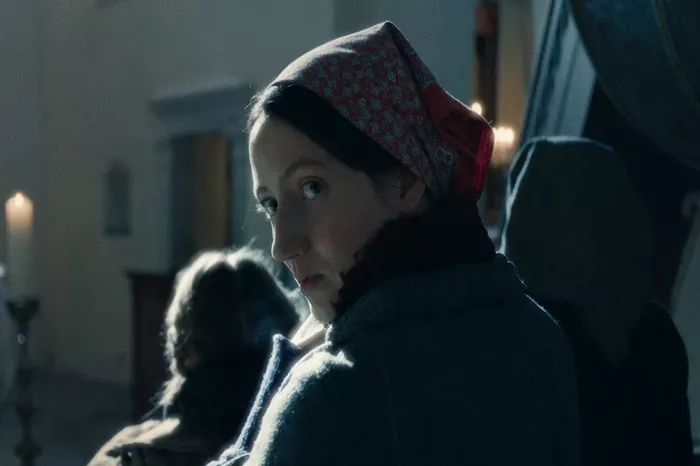Maura Delpero’s latest film, which recently clinched the Grand Jury Prize at this year’s Venice Film Festival, is set to be a standout entry at the Toronto International Film Festival and other events on the festival circuit. This deeply moving and intricately crafted drama explores family secrets against the backdrop of wartime Italy, drawing comparisons to the works of Ermanno Olmi and the Taviani brothers.
Set in the isolated Alpine village of Vermiglio in 1944, the film centers on Cesare, the village schoolteacher played by Tomasso Ragno. Cesare, a white-haired man with high standards and a strong presence in the community, is married to Adele (Roberta Rovelli), who is perpetually pregnant. Ragno’s portrayal of Cesare evokes a blend of Christopher Plummer and Sam Elliott, emphasizing his authoritative yet caring role in the village. Cesare’s influence rivals that of the local priest, and he also leads an adult literacy class.
Among Cesare and Adele’s many children is Dino (Patrick Gardner), a troubled son struggling with mediocrity and alcoholism. Ada (Rachele Potrich), another daughter, is diligent and well-regarded, though she secretly explores her own desires using her father’s hidden collection of lewd photographs. Flavia (Anna Thaler) is the academically gifted child destined for boarding school.
The narrative also introduces Lucia (Martina Scrinzi), the eldest daughter, whose life takes a dramatic turn when Pietro (Giuseppe De Domenico), a fugitive army deserter suffering from what we now recognize as PTSD, arrives in the village. Assisted by Lucia’s cousin Attillo (Santiago Fondevilla), who owes his life to Pietro, the deserter finds refuge in the barn. Despite the risks, Pietro and Lucia develop a romantic relationship, culminating in a marriage and Lucia’s pregnancy. Delpero’s storytelling maintains a calm and understated tone, presenting both the wedding and the heartbreaking death of a baby with a sense of quiet inevitability.
Cesare’s complexities extend beyond his public persona; he indulges in his private collection of gramophone records, an expense that Adele criticizes, arguing that the money would be better spent on essentials. Cesare defends his passion for music as nourishment for his soul, preferring Vivaldi’s “Four Seasons” for his class.
As the war draws to a close, the family’s idyllic life begins to unravel. Pietro must return to his Sicilian hometown, leaving a pregnant and anxious Lucia behind with promises of correspondence that soon falter. The film builds to a dramatic climax as weeks pass without word from Pietro.
Delpero’s film, with its evocative portrayal of rural life and intense emotional narrative, recalls the spirit of Thomas Hardy’s works, though it focuses on a different social milieu. The film immerses viewers in its own world, while inviting them to unravel its mysteries alongside the characters. It stands out as a beautifully crafted and emotionally resonant work, capturing the essence of its setting and the depth of its characters.
Related topic:
What Happened to Alejandro’s Family in Sicario?
Did Anyone Survive The Titanic By Swimming?
Is The New Joker Movie A Musical?

